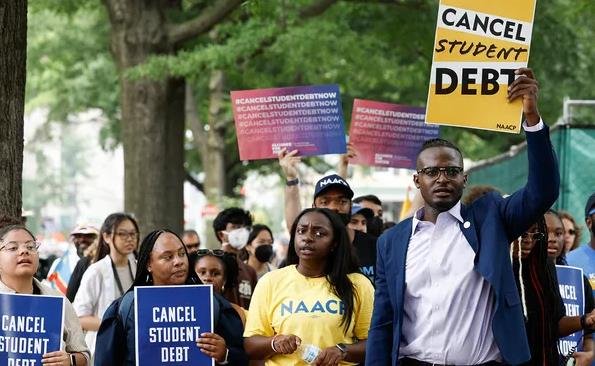The U.S. Court of Appeals for the 5th Circuit has issued an injunction that prevents the Department of Education from implementing new rules that would make it easier for students who were defrauded by their schools to get their loans forgiven.
What are the new rules?
The new rules, which were announced by the Biden administration in June, are part of the borrower defense program, which allows students to apply for loan discharge if they can prove that their schools misled them about the quality or cost of their education, or engaged in other misconduct.
The new rules aim to simplify and streamline the process of applying for and granting relief, as well as expand the eligibility criteria and the amount of relief available. Some of the key features of the new rules are:
- Barring schools from using mandatory arbitration agreements or class action waivers that prevent students from suing them or joining lawsuits against them.
- Providing automatic loan discharge to students whose schools closed within a year of their enrollment, without requiring them to apply or prove harm.
- Creating a new formula to calculate the amount of relief based on the difference between the median earnings of graduates from the program attended by the borrower and the median earnings of graduates from comparable programs.
- Allowing borrowers to submit any evidence they have to support their claims, without requiring them to meet a specific standard of proof.
- Reinstating the Obama-era rule that shifts the burden of proof to schools to disprove fraud allegations, instead of requiring borrowers to prove fraud.

Why did the court block the new rules?
The injunction was granted in response to a lawsuit filed by Career Colleges and Schools of Texas (CCST), a trade association that represents for-profit colleges and vocational schools in Texas. CCST argued that the new rules were arbitrary, capricious, and contrary to law, and that they would cause irreparable harm to its members by exposing them to increased liability and reputational damage.
The court agreed with CCST that it had a likelihood of success on the merits of its claims, and that it would suffer irreparable injury if the new rules went into effect. The court also found that the balance of equities and the public interest favored granting the injunction, as it would preserve the status quo until the case is resolved on appeal.
The court’s order means that the new rules will not take effect until further notice, and that the Department of Education will have to continue using the old rules that were established by the Trump administration in 2019. The old rules are more restrictive and less favorable to borrowers, as they require them to prove that their schools intentionally misled them or acted with reckless disregard for the truth, and limit the amount of relief they can receive.
How will this affect student borrowers?
The injunction is a setback for student borrowers who were hoping to benefit from the new rules, especially those who attended for-profit schools that have been accused of fraud or have closed down. According to the Department of Education, there are more than 100,000 pending borrower defense applications, and many more potential applicants who could qualify under the new rules.
The Department of Education has expressed its disappointment with the court’s decision, and said that it will continue to fight for student borrowers and hold schools accountable. The department also said that it will continue to accept and process borrower defense applications under the old rules, and urged borrowers who believe they were defrauded by their schools to submit their claims as soon as possible.
The case is expected to be heard by a panel of three judges from the 5th Circuit in November. Depending on the outcome, the case could be appealed further to the Supreme Court, which could have a final say on the fate of the new rules.
